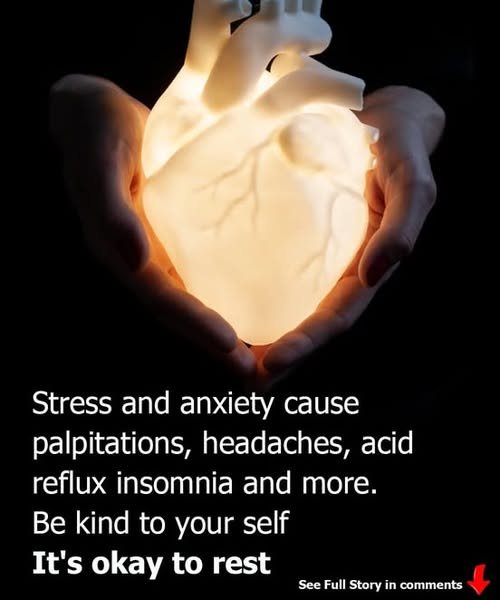Stress and anxiety are natural responses to life’s demands, often arising from a busy lifestyle, overwhelming work, or emotional strain.
While they’re common, persistent stress can take a toll on physical and emotional well-being. Understanding the physical symptoms can help individuals take timely action to restore balance.
Muscle tension is a noticeable sign of stress, especially in areas like the neck, shoulders, and back.
Constant contraction of these muscles can lead to chronic discomfort. Incorporating stretching and relaxation exercises into a daily routine can help reduce this tension. Likewise, stress is a common trigger for tension headaches, caused by the tightening of scalp and neck muscles. Deep breathing, meditation, and regular physical activity are effective methods to alleviate such headaches.
Digestive problems are another indicator of stress. Nausea, constipation, diarrhea, or stomach pain often occur during anxious periods. Moreover, stress can aggravate conditions like acid reflux or irritable bowel syndrome (IBS). Maintaining a healthy diet and minimizing irritants like caffeine can support digestive health. Heart palpitations, or irregular heartbeats, may also occur as a stress response. Though often harmless, persistent palpitations could indicate greater cardiovascular risks. Regular exercise and proper sleep can help manage these symptoms.
Stress can disrupt the menstrual cycle, leading to delayed or missed periods due to hormonal imbalances. It may also impact fertility. Managing stress through balanced nutrition, restful sleep, and mindfulness practices can help regulate reproductive health. Lastly, stress affects sleep and weight. Insomnia and weight gain, particularly around the abdomen, are common. Establishing a consistent bedtime routine and staying physically active can support overall health.


